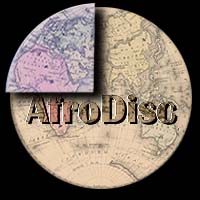
April 1996
Angelique Kidjo, the renown singer from Benin has released a new album titled Fifa (Island). The album, according to a press release, is the culmination of a detailed research the singer conducted in her homeland, a fact augmented by hundreds of names on the credit list. But this album is certain to stir a very loud controversy regarding its authenticity as an African piece (Not that the ruckus would bother the outspoken Kidjo). There is ample reason to dismiss it as western pop aimed straight at the Billboard. Now, there is nothing wrong with doing a commercial venture, especially if the artist is aiming to crack the European and North American markets. The problem with this approach is that the artist risks diluting the very traditional roots music that catapulted him or her to world stage in the first place. This seems to be the case with Fifa. For one thing, Fifa borrows far more liberally from the American pop scene than it does from African roots. The rhythm and the beat could have come straight out of the Bronx. Secondly, Kidjo has finally thrown caution to the wind to experiment with English lyrics. She does a good job in this foreign tongue, but she is a lot more fun when she sings in her native Fon.
Yet to be fair, African roots do squeak through in Fifa. Kidjo whose powerful voice rivals that of her idol Miriam Makeba, pushes herself to a new high, molding the music into her own melody. She is vibrantly alive with a bag full of vocal surprises. She enchants and teases the emotions on the title track. Then she roars like a lioness on the voodoo tracks "Koro-Koro" and "Shango".
In the end, the screaming critics notwithstanding, Fifa will likely define a new direction for Afro funk; big, bold and American. Kidjo will probably sell more of this album than all three previous albums combined. What's more, she would have accomplished the feat on borrowed beat and rhythm.
From that neck of the wood we also get Futur (Festival), a delicious piece of work from Guinea born guitarist Alpha Yaya Diallo, now a resident of Vancouver, B.C. Though far from home, the multi-instrumentalist Diallo remains deeply rooted in the guitar style based on the traditional kora. In fact, this is the sequel to Nene, the 1993 hit album which was nominated for the Juno Awards (Canadian equivalent of the Grammy). On Nene, Diallo single-handedly played all the instruments. Then, the balafon and doun doun drums played prominent roles. This time, Diallo is joined by a talented cast of musicians whose understanding of Manding music enables this album to be mango-ripe with sweetness. The sharp guitar style is complemented by serious drumming on both the African drums and western drum kits. The horns are raucous, yet, there is enough room for other instruments to come through. Through it all, Diallo who trained as a scientist, delivers strong lead vocals with rolling ease and gentility. With this music who needs a lab coat?
Oliver Mutukudzi has long been a staple of the dance circuit in Zimbabwe where his Tuku sound and signature "cough" is big in night clubs. Until last year, however, it had been next to impossible getting a hand on his domestically released albums. Now that has changed with the European release of his latest effort titled Ziwere Mukobenhavn (Shava). The album is a rich poly-rhythm hybrid of the Mbira sound and the heavy Mbaqanga beat from the townships. Mutukudzi who sings in Shona and English projects a distinctively scratchy voice that is at once appealing and sexy especially on the tracks "Hear Me Lord", "Street kids", "Why?" and "Ndipeiwo Zano." The latter is a truly mellow arrangement that appeals directly to our amorous side. It is fair to say, Ziwere Mukovebenhavn is one of the most significant releases from Zimbabwe in the last five years. And it sports one of the best written sleeve notes to boot courtesy of Virginia Mukwesha.
Virginia Mukwesha, a talented artist within her own rights, has released her second album titled Chamu (Shava). With this energetic album, Mukwesha has broken free from the musical nursery of Stele Chiweshe, her strong-willed and very famous mother and mentor. Chamu blends the percussive traditional Jiti rhythm with the modern guitar sounds that have swept Zimbabwe and most of Central Africa. The resulting melody has the heart beat of the village with the colourful aroma of cityscape. Mukwesha, a truly skillful composer/arranger with an ear to the ground, exploits the talents of her cast of musicians for maximum effects. Bob Mteswa, the lead guitarist weaves and bobs like a skylark, the Hosho (shaker) keeps the steady rootsy beat, the Marimba and drums rock and roll, meanwhile Mukwesha darts back and forth as lead vocals. In short, she succeeds brilliantly in reintroducing the traditional sound for an urban dance audience. More power to her. - Opiyo Oloya
Previous editions of Afrodisc are available
Opiyo Oloya is the host of the radio program Karibuni on CIUT 89.5 FM Radio, Toronto. The show airs on Saturday 4:00 PM- 5:00 PM.
E-Mail: [email protected]